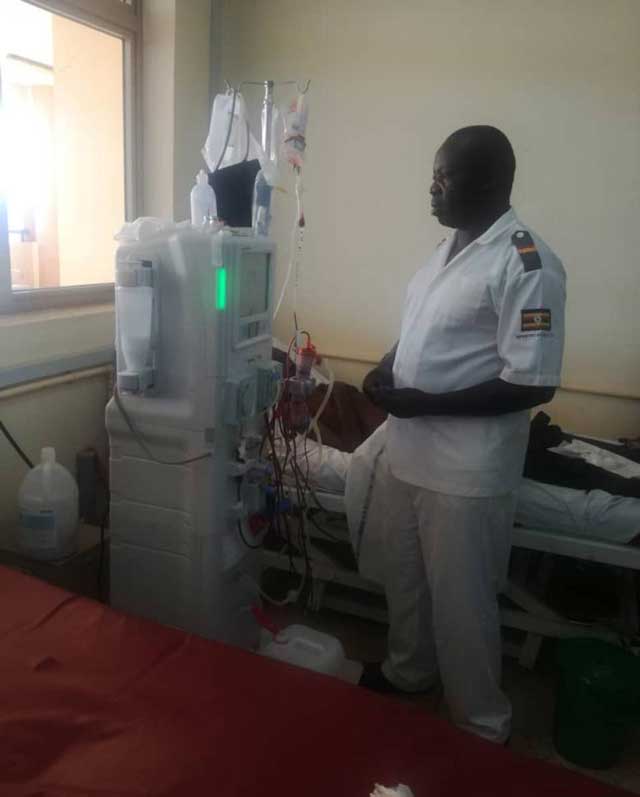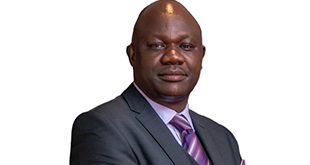
Kampala, Uganda | THE INDEPENDENT | Peter was on a dialysis at the Renal Unit of Kiruddu National Referral hospital during the commemoration of the World Kidney day.
March 12 was gazetted as the annual World Kidney day with the aim of creating awareness about kidney diseases, their prevention and provide support to those affected.
Peter blames HIV drugs for taking a huge toll on his kidneys.
He visits the Renal Unit twice each week for dialysis to rid his body of waste, which under normal circumstances would be done by the kidney.
Peter’s wife, who only identified herself as Betty, says his kidneys started failing when he was put on a drug regimen of ARVs.
She says her husband suddenly started feeling dizzy and weak until they realized both kidneys were sick.
Now, every week, since last year, Pater parts with Shs120, 000 for two episodes of dialysis. Sometimes she says they have to buy other sundries required when there is a stock out.
At Kiruddu hospital, Moses Odong, a senior nursing officer who heads the renal unit, says what would be appropriate is for patients like Peter to undergo dialysis thrice a week but because of the numbers and the fact that many can’t afford the over Shs180, 000 per week, they resolved that many of their up to 50 patients seen every day cut treatment to two sessions per week.
He however, says they are still overwhelmed by the numbers as many people are currently presenting with kidney challenges increasingly arising from overuse of drugs especially antibiotics and painkillers, which end up shutting down their kidneys.
Odongo says while many of their patients are on chronic care and will have to be on dialysis for the rest of their lives, the unit also admits people with acute kidney failure, which they can reverse with treatment.
For those with the acute type, he says most of their patients are women who fail to follow advice of doctors while pregnant and don’t seek antenatal care.
In an earlier interview, the Executive Director Kiruddu hospital, Dr. Charles Kabugo told Uganda Radio Network that the unit is overwhelmed by the numbers and yet they only have 19 dialysis beds, which are supposed to serve about 50 patients per day.
As a result, he said they have had to change schedules such that treatment starts at 8pm up to morning from Monday to Saturday. Sometimes, he said, they are forced to work on Sundays too
since for each patient, the session takes up to four hours.
To deal with the numbers at the renal unit, he asked government to consider setting up such units at other government hospitals preferably regional referrals because of the expense involved in running them. He blames the unit for being responsible for the hospital’s high utility bills going to Shs45million per month for electricity and Shs15million for Water.
When it comes to supplies and medicines, the unit takes the largest share of Shs3billion of the Shs4.5million annual budget allocated to the hospital.
As part of awareness and prevention to mark World Kidney day under the theme ‘Kidney Health for Everyone Everywhere – from Prevention to Detection and Equitable Access to Care’, experts warn the public against excessive alcohol consumption, self-prescription of drugs and poor dieting since majority of cases are as a result of pre- existing non communicable diseases like diabetes.
*****
URN
 The Independent Uganda: You get the Truth we Pay the Price
The Independent Uganda: You get the Truth we Pay the Price


